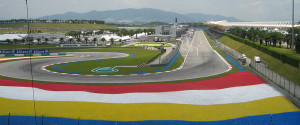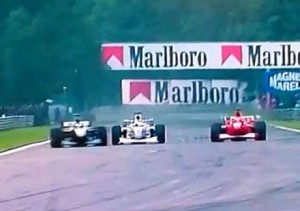
Roughly a year ago Red Bull’s biggest worry was the unrest between its two drivers. In a ruthless move Sebastian Vettel ignored the now infamous ‘multi-21’call to hold position and pinched victory from Mark Webber.
Twelve months later the second round of the championship again brings Red Bull and the paddock to Malaysia. The reigning champions arrive at the Sepang International circuit with no points on the board and lingering questions about reliability. Despite having nothing to show for the Australian GP definite progress had been made. The RB10 looked settled and quick with a good aerodynamic base. Their issues have been confined, mainly, the Renault power unit and Christian Horner believes that “massive progress” can be made if the French manufacturer gets on top of its problems.
The tropical climate of Kuala Lumpur requires a unique approach from drivers and teams. Unlike in Melbourne the Sepang International circuit, with a length of 5.542 km and a total of 56 laps, will test the mettle of the 2014  F1 cars. Several high speed corners will put aerodynamics under the microscope while a taxing 65% of the lap is spent on full throttle. The Malaysian GP is additionally notorious for its stiflingly hot and humid conditions which puts serious physical demands on the driver.
F1 cars. Several high speed corners will put aerodynamics under the microscope while a taxing 65% of the lap is spent on full throttle. The Malaysian GP is additionally notorious for its stiflingly hot and humid conditions which puts serious physical demands on the driver.
Pirelli has brought its medium and hard compound tyres to combat the relatively abrasive track surface. Tyre degradation hasn’t featured yet in 2014 but Malaysia presents, as the first permanent race track of the year, a substantial demand on tyre performance. When the weather pendulum has tended towards extreme heat track temperatures have reached as high as 52 degrees Celsius. Issues with overheating will be a key area of focus, especially during the long-runs.
The demands on the hybrid power unit are no less stressful. Twelve seconds is spent on full throttle during the 920 meter long back straight and with only four slow corners Sepang was built with one thing in mind – speed. Several teams were down on power and straight-line speed in the season opener and if those issues have not been solved for this weekend they’ll be nothing more than mobile chicanes.
Mercedes have the speed, reliability, performance and the drivers. The Silver Arrows team start the weekend as overwhelming favourites but under a veil of mystery. Lewis Hamilton was set fair with pole position and the fastest car on the grid in Australia. But one vital element was missing – reliability. Reliability is a word that fans will grow weary of in the initial part of the season but it is the most important commodity in the sport. With it, it ensures the capacity for consistency and crucial points. Without it, success is unattainable.
fastest car on the grid in Australia. But one vital element was missing – reliability. Reliability is a word that fans will grow weary of in the initial part of the season but it is the most important commodity in the sport. With it, it ensures the capacity for consistency and crucial points. Without it, success is unattainable.
Ironically, a lot of noise has been made about the new sound of Formula 1. No longer does the V8 engine scream down the straights and rattle the fillings in your teeth and it’s a shame. It’s a shame because for countless years Formula 1 has been synonymous with bone jarring racket so loud it could cause permanent ear damage. It’s a shame but it isn’t as dreadful as some would suggest. Sound isn’t what makes this Formula 1. Mika Hakkinen’s inspired simultaneous pass on Michael Schumacher and Ricardo Zonta at the 2000 Belgium GP, Schumi’s unbelievable 4 pit-stop strategy at the 2004 French GP, Kimi Raikkonen’s sensational drive through the field of the 2005 Japanese GP – these and many more moments and races are what define the soul of this gut-wrenchingly passionate sport. They are revered because of the brilliance of men, in the cockpits and in the factories. While the distinctive sound of Formula 1 may have gone it is true still that the absurd talent and passion never will.


